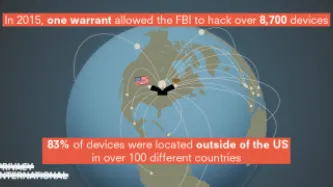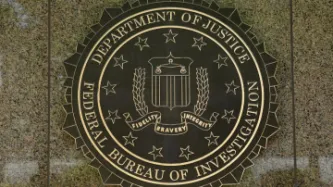Advanced Search
Content Type: Press release
Meta, the largest provider of social media sites and display advertising in the UK, acquired GIPHY, the largest provider of GIFs. In its report of 30 November 2021 the CMA found that the completed merger between Meta and GIPHY will give rise to a substantial lessening of competition.
The CAT confirmed the CMA's assessment and dismissed all but one of Meta’s appeal grounds, paving the way for Meta to sell GIPHY, as demanded by the CMA.
PI was granted permission to intervene in this case, one of…
Content Type: Press release
A joint press release from Privacy International, Reprieve, CAJ, and the Pat Finucane Centre.
Agents of MI5 and other Government bodies could be legally authorised to commit crimes under new legislation introduced today. There appear to be no express limits in the legislation on the types of crime which could be authorised.
The Covert Human Intelligence Sources (Criminal Conduct) Bill appears not to explicitly prohibit the authorisation of murder, torture, or sexual violence. Reprieve,…
Content Type: Press release
MI6 has been forced to apologise to the Investigatory Powers Tribunal after two of its officers asked court staff to return documents relating to MI6’s use of agents and not show them to judges. The Tribunal suggested MI6’s actions were “inappropriate interference”.
The revelation emerged in an ongoing legal case considering what crimes intelligence informants are allowed to commit, after it was revealed that MI5 maintains a secret policy under which agents can be “authorised” to…
Content Type: News & Analysis
*Photo by Michelle Ding on Unsplash
Pat Finucane was killed in Belfast in 1989. As he and his family ate Sunday dinner, loyalist paramilitaries broke in and shot Pat, a high profile solicitor, in front of his wife and children.
The Report of the Patrick Finucane Review in 2012 expressed “significant doubt as to whether Patrick Finucane would have been murdered by the UDA [Ulster Defence Association] had it not been for the different strands of involvement by the…
Content Type: Long Read
*Photo by Kristina Flour on Unsplash
The British government needs to provide assurances that MI5’s secret policy does not authorise people to commit serious human rights violations or cover up of such crimes
Privacy International, along Reprieve, the Committee on the Administration of Justice, and the Pat Finucane Centre, is challenging the secret policy of MI5 to authorise or enable its so called “agents” (not MI5 officials) to commit crimes here in the UK.
So far we have discovered…
Content Type: Press release
Thames House, Offices of MI5. Photo Credit: Wikimedia Commons
MI5 collected Privacy International’s private data and examined it
GCHQ, MI5, and MI6 unlawfully collected data relating to UK charity Privacy International
Privacy International has written to the UK's Home Secretary demanding action against spy agencies
Disclosures come less than a fortnight after UK laws on mass surveillance ruled unlawful at European Court of Human Rights
The UK's domestic-facing intelligence…
Content Type: Long Read
Introduction
A growing number of governments around the world are embracing hacking to facilitate their surveillance activities. Yet hacking presents unique and grave threats to our privacy and security. It is far more intrusive than any other surveillance technique, capable of accessing information sufficient to build a detailed profile of a person, as well as altering or deleting that information. At the same time, hacking not only undermines the security of targeted systems, but also has…
Content Type: Long Read
This piece was orignally published in Slate in February 2017
In 2015, the FBI obtained a warrant to hack the devices of every visitor to a child pornography website. On the basis of this single warrant, the FBI ultimately hacked more than 8,700 computers, resulting in a wave of federal prosecutions. The vast majority of these devices—over 83 percent—were located outside the United States, in more than 100 different countries. Now, we are in the midst of the first cases…
Content Type: Long Read
This piece originally appeared here.
On both sides of the Atlantic, we are witnessing the dramatic expansion of government hacking powers. In the United States, a proposed amendment to Rule 41 of the Federal Rules of Criminal Procedure would permit the government to obtain a warrant, in certain circumstances, to hack unspecified numbers of electronic devices anywhere in the world. Meanwhile, across the pond, the British Parliament is currently debating the Investigatory…







